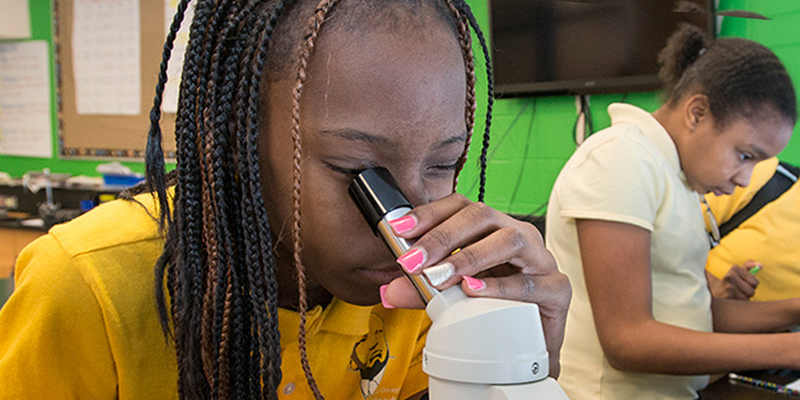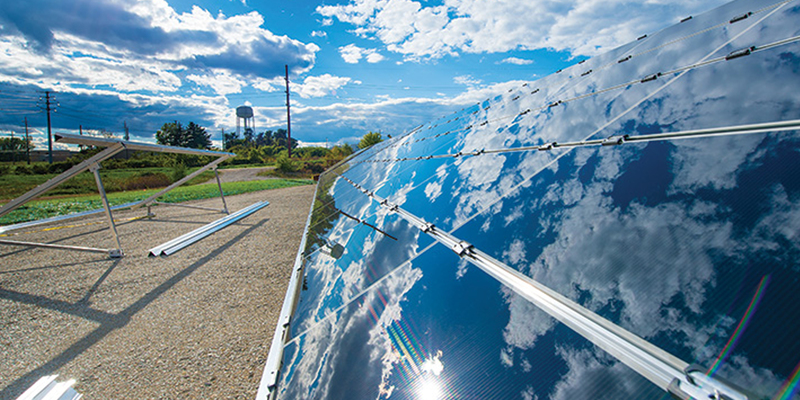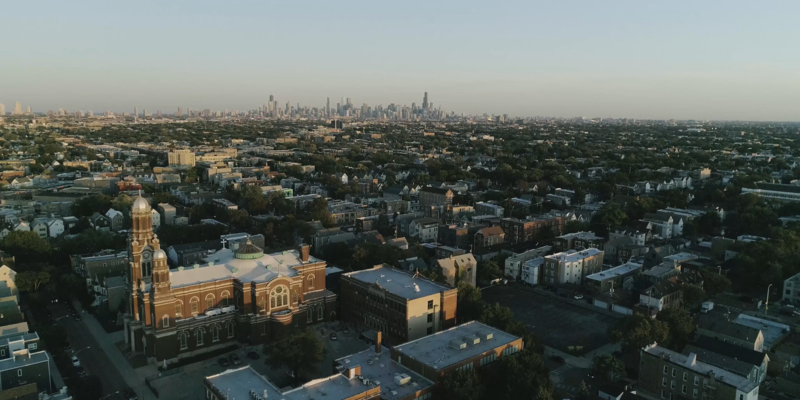Urban Labs Innovation Challenge Winners Poised To Cut Pollution With Innovative Solutions
Urban Labs / October 21, 2016
Winners to implement and test their ideas with University of Chicago researchers and the Delhi government.
The University of Chicago and Delhi government today announced three winners in their first-of-a-kind crowdsourcing competition to cut pollution in Delhi. The winners of the Urban Labs Innovation Challenge: Delhi, a project of the Tata Centre for Development that is supported by Tata Trusts, together received more than Rs. 2 crores. They will now use that money to work with the University of Chicago Urban Labs’ Energy & Environment Lab, the Energy Policy Institute at the University of Chicago’s India team (EPIC-India), and the Delhi government to implement and test their ideas. The winners were among nearly 250 students, researchers, entrepreneurs, non-profit and for-profit organizations and citizens from across India and around the world who submitted ideas for the Delhi Innovation Challenge.
“It has been inspiring to see the level of enthusiasm for this contest within Delhi and around India,” said Delhi Deputy Chief Minister Manish Sisodia. “With three promising winners chosen, the Delhi government now looks forward to collaborating with the talented academic minds at the University of Chicago to carry out these innovative ideas while establishing our city as a trailblazer for how working together can establish immense progress to improve our environment and the lives of our citizens.”
“Having received so many creative and passionate ideas to improve Delhi’s environment, selecting the winners was a deeply challenging and competitive process. But we believe these winning projects hold incredible potential to improve the lives of Delhi’s citizens,” said Michael Greenstone, the director of EPIC and the Urban Labs’ Energy & Environment Lab. “We look forward to working with the winners and the Delhi government to test these ideas and hope they will become model projects proven to work in Delhi, throughout India, and beyond.”
The winners include: Chakr Innovation Pvt. Ltd, which will pilot their device that captures more than 70 percent of particulate pollution from diesel engines and converts it to black ink and paints; Climate Foundation and Tide Technocrats Pvt. Ltd, which will employ devices that turn rice straw into biochar to enrich agricultural soil and prevent the heavy air pollution in Delhi from rice straw burning; and Mahila Housing SEWA Trust, which will deploy cool roofing solutions in Delhi slums to bring down indoor temperature and allow dwellers to conserve energy and improve their productivity and quality of life.
“In putting these programs through the rigor of testing with the collaboration of the University of Chicago, we hope to scale them up into programs that can be employed in Delhi, but also in other cities in India and the world,” said Ashish Khetan, Vice Chairperson of the Dialogue and Development Commission of Delhi.
“We believe the projects will reduce pollution in Delhi and hope to prove how successful such innovative partnerships can be at generating evidence-based programs that work,” said Anna Agarwal, senior manager of the Challenge for the University of Chicago-India.
More on the winning projects:
- Chakr Innovation Pvt. Ltd: Removal of Particulate Matter from the Exhaust of Internal Combustion Engines and Subsequent Processing to Convert it into Ink and Paints.
Particulate matter pollution is known to cause strokes, asthma and even cancer. Vehicle exhaust, including diesel generators, contributes up to 34 percent of Delhi’s particulate pollution. This project will employ a device which when coupled with the exhaust pipe of diesel engines absorbs over 72 percent of the particulate matter—all without negative effects on engine performance. The technology can then convert this captured particulate matter into black ink and paints which can be sold to literally “Print from Pollution”. The project will pilot the technology initially on diesel generators used as power back-ups for mobile telephone towers in Delhi, which are off the grid and consume over 50 litres of diesel each day to run. There are over 14,000 mobile towers in Delhi and most of them have a diesel generator installed either as the primary source of power or as power back-up in case of load shedding. From there, the project will use the technology for larger diesel generators used at big hospitals and hotels, followed commercial vehicles.
- Climate Foundation and Tide Technocrats Pvt. Ltd: “Charvesting” to Eliminate Rice Field Burning in Haryana and Punjab to Reduce Air and Water Pollution in Delhi
Most farmers in Punjab and Haryana burn rice straw after harvesting is over to prepare fields quickly for the next season’s crops. Burning from the two states comprises 48 percent of total emissions from rice straw burning across India. During the months rice straw is burned, Delhi experiences a much higher air pollution, with PM2.5 levels commonly exceeding 400 ppm. Governments in Punjab and Haryana have acknowledged the importance of the issue. Straw burning is actually illegal, but inexpensive, and thus widely practiced. “Charvesters” affordably recycle rice straw into biochar with clean emissions using the Biochar Reactors developed by the Climate Foundation. “Charvesting” allows farmers to comply with existing air pollution laws at minimal cost and effort, increase soil productivity and restore depleted lands. Several villages in Haryana support this project and have agreed to change the practice of open rice¬ straw burning and pilot the proposed “Charvesting” system. This approach will ultimately lead to a significant reduction in air and water pollution in Northern India including Delhi, provide a cost ¬effective, reliable, sustainable and decentralized approach to address local needs, increase crop growth, improve farmer productivity, sequester carbon in soils, and provide a valuable income source for rural villages.
- Mahila Housing SEWA Trust: Transforming Home Ambience for Slum Dwellers in Delhi
Access to light, ventilation, and efficient energy is critical to improving the quality of life and productivity of the poor, especially women who spend the majority of their time indoors. Unfortunately, these women only have illegal and irregular access to electricity. Poor light and ventilation make them depend more on electrical lighting and cooling devices, and the dwellings are often constructed with materials that absorb heat and require more energy to cool down. Slum communities often use cooling fans for hours a day, raising their energy bills by over 3000 INR per month especially during summers. This project will pilot cool roofs in three slums of Delhi to reduce home temperatures and improve ventilation. It will also mobilize communities to generate awareness on the benefits of using the product by training women entrepreneurs and design a loan product to create a sustainable business model. The improved indoor environment will help reduce exposure to extreme heat. The reduction in household energy costs will allow poor households to increase spending on food, health, and education, resulting in improvements in the quality of life. And the low energy, better designed homes will make the households less vulnerable to weather impacts, improve their resilience against climate change risks.





